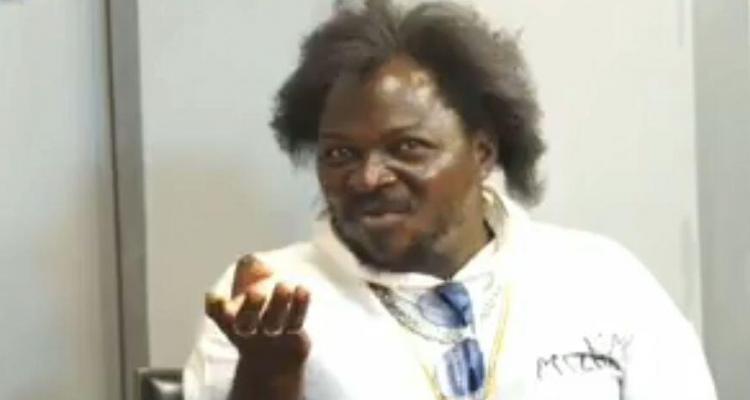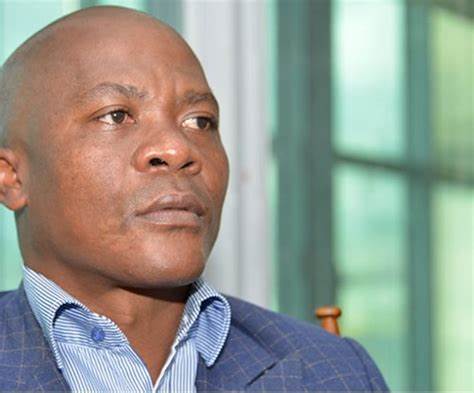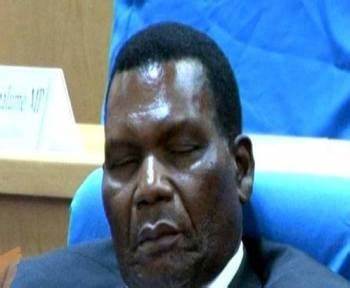On Tuesday, May 27, 2025, Mzuzu, the heart of Malawi’s northern region, witnessed a significant political statement—not through chants or placards, but through silence.
A planned demonstration led by Bon Kalindo and Sylvester Namiwa, both affiliated with the Democratic Progressive Party (DPP), saw a low turnout that people have to be enticed by Arthur Peter Mutharika’s dirty money to take party. Some of the protesters have to be ferried in lorries and busses from as far as Mulanje and Thyolo districts in the south.

This absence wasn’t due to apathy but a conscious decision by Mzuzu residents to reject being used as pawns in political games that have historically disrupted their peace and livelihoods. At times even lives have lost.
Mzuzu’s decision is deeply rooted in its history. In July 2011, under the DPP-led government of the late President Bingu wa Mutharika, police opened fire on demonstrators, resulting in the deaths of 20 people nationwide.
Mzuzu faced the worst of these massacres when more than 10 protesters were gunned down by police after being ordered to shoot to kill. The trauma from that day lingers, making residents wary of any political activities that could reignite such violence.
That bloodshed, widely condemned by the international community, remains a scar on the city’s conscience. Local residents have expressed fears that similar violence could erupt again, especially in light of the recent leaked audio implicating DPP operatives in planning violent shoot-to-kill tactics disguised as police enforcement.
“We lost brothers and sisters in 2011. We won’t make that mistake again,” said a vendor who requested anonymity. “Chisale, Kalindo and Namiwa should try their dirty games elsewhere.”
What is making these demonstrations interesting is that this is second time in row that we have such protests in Mzuzu yet, the organizers hail predominantly from the Southern Region. Kalindo comes from Mulanje, Namiwa is from Phalombe, Layton Mangochi is from Thyolo, Cassim Jangiya from Machinga, Bon Mashololo (Thyolo), Emily Hlongo (Chiradzulu), and Gomezgani Nkhoma (Balaka).

This repeated choice of Mzuzu as a protest venue has raised suspicions among locals about the true intent behind these demonstrations.
A local vendor expressed this sentiment: “We are tired. They can’t organize this in Blantyre or Lilongwe. It’s just Mzuzu. Why?”
Platforms like Facebook have been abuzz with residents voicing their frustrations. One user commented, “Why are they coming all the way from Mulanje and Thyolo to demonstrate here? Last time we lost millions worth of merchandise because of these demonstrations. We don’t want this here. Akapange kwawo.”
Another post read, “These demos are not for us. They bring chaos, not change.”
Some well-meaning Civil society organizations (CSOs) have also criticized the motives behind these demonstrations. The Civil Society Network on National Accountability and Transparency (CSNAT) stated that the protests are ill-timed and driven by a few greedy politicians seeking personal gain.
The Network emphasized that while the right to demonstrate is fundamental, it should be exercised responsibly and not at the expense of public order and safety.
The repeated use of Mzuzu as a protest ground by individuals from other regions undermines the city’s autonomy and disregards the well-being of its residents. True democratic engagement requires genuine dialogue that includes local voices and addresses their specific concerns. Imposing external agendas only breeds resentment and resistance.
Now some might ask why Mzuzu all of a sudden has become a darling to the DPP and its sympathizers yet records show and tell us a different story.

Our memories are fresh when Dr George Chaponda, internationally acclaimed diplomat and legal mind, then DPP vice president for the south once declared that the “DPP doesn’t need the northern region vote to win a national election”.
This was not a slip of the tongue; it was well thought of, and mirrored the truest thoughts on how the DPP viewed the northern region.
Since its formation, DPP has also shown little effort to conceal it’s disdain for the northern region.
The July 20, 2011 massacre was an epitome of DPPs disdain for northerners.
Today, these demonstrations show us that DPP machinery yet again laid bare it’s scorn for the northern region; unleashing its goons of mercenaries on peaceful communities of Mzuzu, forcing them to shut down businesses and daily routines while witnessing ferried demonstrators from Mulanje, Phalombe, Thyolo and Chiradzulu turn their beautiful city into an unnecessary battlefield to satisfy egos of Bon Kalindo and his mates.
Going through social media posts from bona fide people of Mzuzu one thing comes out clearly; Mzuzu is not part of this comedy, Mzuzu doesn’t want to be cast in this comedy, Mzuzu is tired of being in this comedy being directed by Bon Kalindo.
Bon Kalindo and his comedians claim that their demonstrations are about MEC and Smartmatic…and MEC chair Justice Anabel Ntalimanja. MEC is headquartered in Lilongwe. Not in Mzuzu.
We can only marvel at the rationale for five southerners jumping a whole full region, and opting to hold a so called anti MEC demonstration in Mzuzu.
This is our guess. It is because Bon Kalindo and his pay masters at Page House underestimates the intelligence of the people from the northern region; they know no one in Blantyre or Lilongwe would buy their line of thinking. People are fatigued by demonstrations so much so that vigilantes have been formed in Blantyre and Lilongwe to counter demonstrations that disrupt their livelihoods.
And so the alternative was to go to Mzuzu. However, to their surprise, people of Mzuzu have today properly told Kalindo and his cohorts off. They don’t want to be used.
This rejection is a powerful assertion of its right to peace and self-determination. It’s a call for political actors to engage with communities respectfully and authentically. As Malawi continues to navigate its democratic journey, recognizing and honoring the autonomy of each region is essential for national unity and progress.








